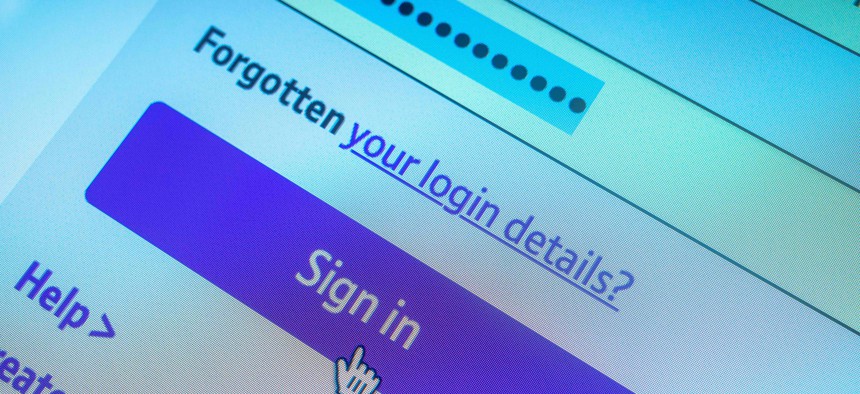States Have Work to do Making Identity Verification User Friendly

SEAN GLADWELL/Getty Images
COMMENTARY | New survey findings highlight the difficulties and concerns that emerge as people try to sign up for state benefits. The poll also found people are more inclined to trust industry than government when it comes to enrolling in services and programs.
A prime example of the anxiety that people feel over new technologies and perceived threats to privacy is captured in a new poll of 2,400 likely voters in four swing states—Arizona, Ohio, Georgia and Michigan. The poll shows that an overwhelming majority, around 70%, are very or somewhat concerned that their identities could be stolen online. In fact, about one in three polled said that they themselves, or someone they know, has already been a victim of identity theft.
The challenges don’t stop there. Approximately three-quarters of those surveyed across the four states expressed deep concern about the sale of personal information to third parties, about two-thirds are concerned about the risk of identity theft, and more than half are concerned about the accuracy and effectiveness of government digital identity verification programs.

Interestingly, voters in these states trust private industry more than government when it comes to identity verification. Approximately 50% of voters think that e-commerce providers are capable of safely and accurately onboarding people into new programs and services. By contrast, only about 30% of voters think that government is up to the challenge. That’s an enormous trust gap faced by government.
Of those who have tried to access state benefits programs (e.g., unemployment insurance) through existing systems:
- Nearly 45% said that they experienced problems registering and having their identity verified.
- Nearly 50% expressed concerns about being asked to capture their identification documents and selfie as part of the enrollment process.
- Roughly 30% said that they abandoned the identity verification process before it was completed, expressing concerns about the security of the data and that the sign-up process was too difficult and time-consuming.
- Concerns and abandonment rates were significantly higher among non-white voters than white voters.
Voters also reported that existing identity verification processes take too long – and some voters – 10% to 17% – reported that their identities were never verified, and they did not receive the benefits they were due. On average nearly 29% of respondents in all four states reported that the verification process took anywhere from three months to never – an unacceptable level by any standard.
Ultimately, voters in these states are not convinced that current government programs are adequate. Just under a third of voters believe that the states have made it “quick, easy, and accurate to verify identities online.”
Indeed, voters in these states are on red alert about how their personal information is being used and what the government is doing to verify identity and stop fraud. At least right now, most voters do not believe that government is doing enough to verify digital identities and protect people’s most sensitive personal information.
Despite the high levels of anxiety and a pervasive distrust for government institutions, voters say they want a convenient, user-friendly system that takes moments, not days or weeks, to validate their identity and give them peace-of-mind.
Put simply, voters want a more streamlined, integrated system that is easier to use. Only one in three voters believe government agencies have made it quick, easy, and accurate to verify identities online. Online shopping is viewed as a role model for effective onboarding.
Here’s the bottom line: state governments have significant work to do to make the system of verifying identity online simpler and easier to use. Right now, there is frustration with the current system and the friction that people experience when trying to access public services. But, importantly, voters in at least four states feel that improvement is possible.
Polling was commissioned by Socure and conducted by John Zogby Strategies from April 29 through June 3, 2022.
John Zogby is a veteran pollster, author, and analyst of the political scene. He is senior partner at John Zogby Strategies.
NEXT STORY: States Build on Covid Lessons for Monkeypox Tracking





